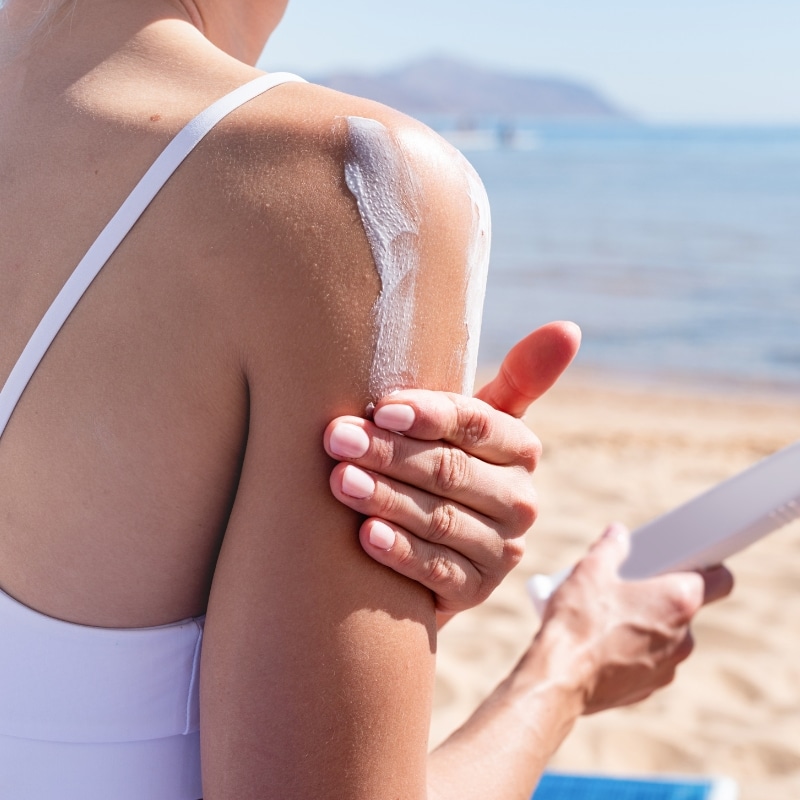Skincare is an essential practice for maintaining overall health and boosting self-confidence. As the body’s largest organ, the skin protects against environmental elements, regulates temperature, and synthesizes vitamin D. It also reflects internal health and plays a role in how you perceive yourself. A thoughtful skincare routine does not just improve appearance—it ensures long-term health benefits for your skin.
In this blog, we will explore why skincare matters, what a good routine looks like, and how to address specific concerns like acne, aging, or hyperpigmentation.
Why Skincare Matters
Healthy skin is not just about looking good. The skin performs critical roles in keeping your body safe and healthy.
- Protection from Environmental Damage: Your skin acts as a shield, blocking harmful bacteria, toxins, and ultraviolet (UV) rays. Melanin, the pigment in your skin, provides some natural UV protection, but consistent sunscreen use is necessary to prevent sunburn, premature aging, and skin cancer.
- Temperature Regulation: The skin helps cool you down through sweat and retains heat when it is cold by constricting blood vessels.
- Reflection of Internal Health: Skin issues like dryness, persistent rashes, or sudden discoloration can indicate underlying problems like allergies, hormonal imbalances, or even thyroid dysfunction.
- Boosts Confidence: When your skin looks good, you feel good. Clear, radiant skin helps enhance your self-image and mental well-being.
The Basics of a Good Skincare Routine
An effective skincare routine addresses your skin’s needs while adapting to factors like your skin type, environment, and age. Here is how you can create one:
1. Cleansing
Cleaning your skin is the foundation of any good routine. It removes dirt, oil, makeup, and other impurities, allowing your skin to breathe and absorb beneficial ingredients more effectively.
- For oily skin, choose a foaming or gel cleanser that removes excess sebum.
- For dry skin, go with a cream-based formula that hydrates while cleansing.
- Use lukewarm water and avoid over-washing, which can strip the skin of its natural oils.
2. Exfoliation
Exfoliating removes dead skin cells, revealing a fresh, radiant layer beneath. However, it should be done in moderation—one to three times a week, depending on your skin type and the product. Over-exfoliating can irritate the skin and damage its barrier.
Pro Tip: Steam your face before exfoliating to open pores and enhance the benefits.
3. Moisturizing
Keeping your skin hydrated is critical, regardless of your skin type. Moisturizers maintain the skin’s water levels and strengthen its protective barrier.
- For oily skin, opt for an oil-free or gel-based moisturizer.
- For dry or aging skin, choose richer, hydrating creams that lock in moisture.
4. Sun Protection
Sunscreen is non-negotiable. Even on cloudy days, UV rays can damage your skin and speed up aging. Choose a broad-spectrum sunscreen with at least SPF 30 and apply it every morning as the final step of your routine. If your moisturizer contains SPF, you can skip this step but reapply sunscreen every few hours if you are outdoors.
Personalizing Your Skincare Routine
Everyone’s skin is unique, and your routine should reflect that. Start by identifying your skin type and addressing its specific needs.
- Normal Skin: Balanced skin needs minimal upkeep. A gentle cleanser, moisturizer, and SPF should suffice.
- Dry Skin: Incorporate rich moisturizers and avoid alcohol-based products.
- Oily Skin: Use oil-free products and consider a mattifying toner to manage shine.
- Combination Skin: Treat different areas accordingly—lighter products for oily zones and richer ones for dry patches.
- Sensitive Skin: Stick to gentle, fragrance-free, and hypoallergenic products to avoid irritation.
Adapt your routine to your environment. For example, winter may require more hydration, while humid climates call for lightweight products
Addressing Specific Skin Concerns
Skincare is not one-size-fits-all, especially when it comes to addressing specific concerns like acne, aging, or hyperpigmentation. Each of these issues requires targeted products and a thoughtful approach to see real improvements.
Acne
Acne affects people of all ages and is often the result of clogged pores, excess oil production, or bacteria. Managing acne starts with using the right products:
- Cleansers with salicylic acid or benzoyl peroxide help clear pores and reduce inflammation.
- Avoid heavy moisturizers that might clog your pores and worsen breakouts.
- Include a spot treatment, such as one with tea tree oil or benzoyl peroxide, to tackle individual blemishes quickly.
Aging
As skin ages, it naturally loses elasticity and moisture, leading to fine lines and wrinkles. To combat these effects:
- Use antioxidant serums like vitamin C to neutralize free radicals that contribute to premature aging.
- Incorporate retinoids to stimulate collagen production and improve skin texture.
- Keep your skin hydrated with rich, nourishing creams to maintain elasticity.
Hyperpigmentation
Dark spots can result from sun damage, acne scars, or hormonal changes, but they are treatable. To reduce discoloration:
- Apply serums with niacinamide or kojic acid, which brightens and evens the skin tone.
- Always use sunscreen to prevent further darkening and protect against UV rays, which exacerbate pigmentation issues.
Professional Skincare Treatments
While at-home routines form the foundation of skincare, professional treatments can provide an extra boost. Options include:
- Facials: These cleanse and nourish your skin, leaving it refreshed.
- Chemical Peels: Ideal for treating acne scars or uneven texture.
- Microneedling: Stimulates collagen for a youthful glow.
- Botox or Fillers: Smooth wrinkles and restore volume.
Common Mistakes to Avoid
- Skipping Sunscreen: It is crucial every single day, even indoors, as UV rays can penetrate windows.
- Overloading Products: Using too many products at once can irritate your skin. Stick to essentials.
- Neglecting Hydration: Drinking water is vital for internal and external hydration.
Let Your Skin Glow With the Right Routine
Your skin does more than cover your body. It protects, regulates, and reflects your overall health. A consistent and personalized skincare routine keeps it glowing and healthy for years to come. By focusing on the basics—cleansing, exfoliating, moisturizing, and sun protection—you can prevent issues and tackle specific concerns effectively.
If you need guidance on tailoring a skincare regimen that works for you, Zeam Health & Wellness is here to help. Our experts offer personalized skincare consultations and advanced treatments to meet your unique needs.
Take the first step toward healthier, glowing skin by contacting Zeam Health & Wellness today.




